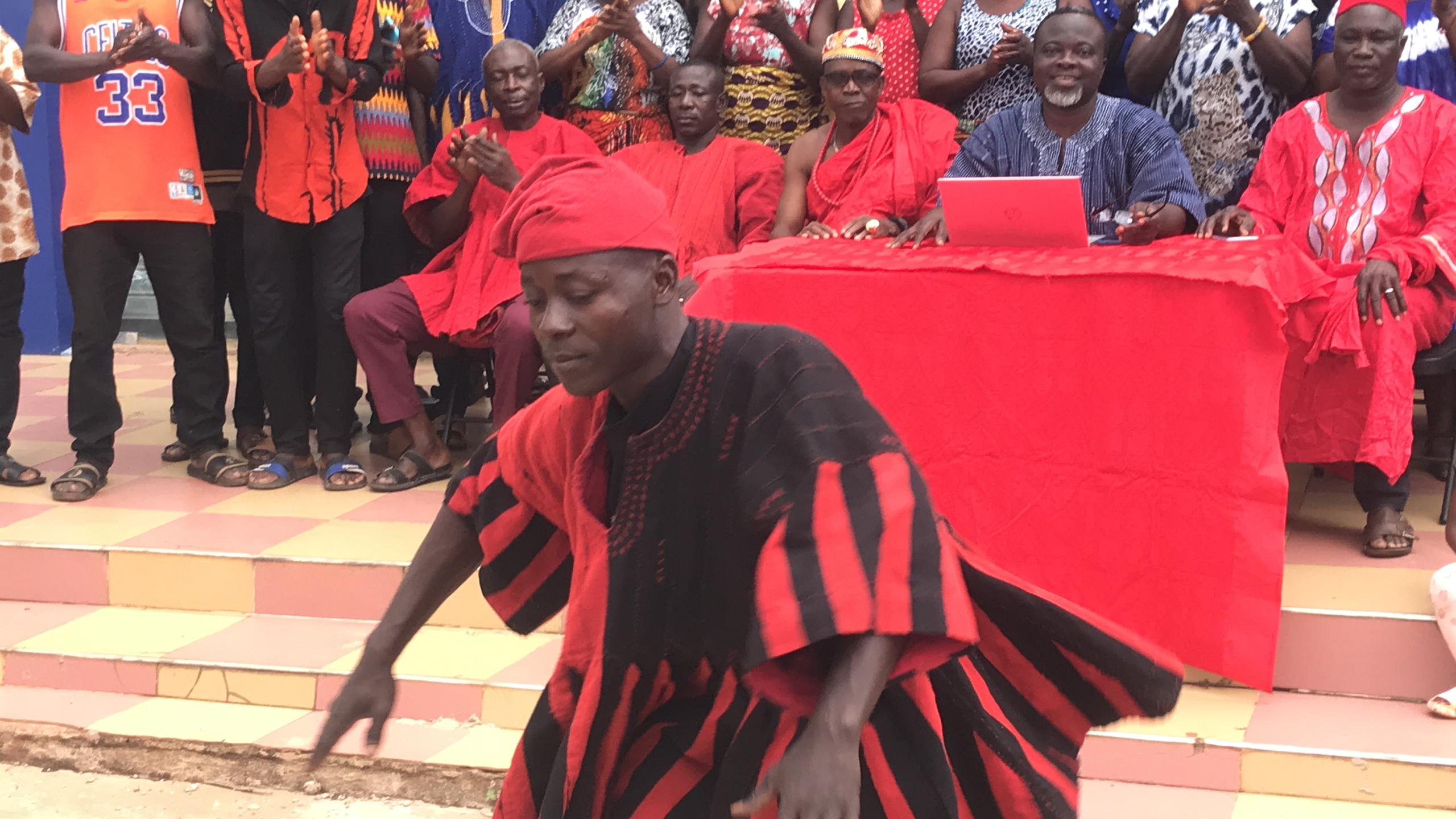The Adele community in Nkwanta South, Oti Region, has called on the government to establish an independent commission of inquiry to find a lasting solution to the ongoing conflict in Nkwanta South.
At a press conference, Vincent Antwi, speaking on behalf of the Adele community, addressed what he described as numerous inaccuracies and misleading claims made by the Akyode tribe regarding the unfortunate incidents in Nkwanta and its surrounding communities.
He emphasized the need for collaboration with the government and security agencies to achieve sustainable peace.
Antwi expressed gratitude to past and present governments, the Oti Caucus Members of Parliament, military and police personnel, the Oti Regional Minister, the Municipal Chief Executive for Nkwanta South, and health workers at both St. Joseph Catholic Hospital and the Government Hospital for their dedication to restoring peace in Nkwanta and its neighboring communities.
He strongly condemned the acts of violence, including killings, maiming, destruction of property, and general chaos inflicted upon residents of Nkwanta and nearby areas.
Describing the violence as “shameful and barbaric,” Antwi said it was disheartening that such atrocities had occurred among communities that have coexisted peacefully for centuries, sharing customs, traditions, and even intermarriages.
He added that the Adele community had taken to social media to counter what it described as fabrications and misrepresentations by the Akyodes, which, in their view, were misleading the general public. He noted that the Adeles would have preferred a more civil and respectful resolution of the conflict.

Brief History of the Adele People and Nkwanta
According to the Adele community’s earlier press release dated December 9, 2023, the Adeles are believed to have migrated from Nigeria and were once under the rule of King Agorkorli of Nortsie. They fled his oppressive reign and moved northward until settling in the Togo-Atakora mountains, extending to their present homeland.
As with many other ethnic groups, the Adele people saw their land divided between the British and the French after World War II. As a result, most of their ancestral territory ended up in the Republic of Togo, with only about a third located in present-day Ghana.
The name “Adele” is believed to be a German corruption of the word “Bedire,” which means “the greater ones.”
In the Oti Region, the Adeles share land boundaries with the Nchumurus to the west near Dambai, the Ntrubos to the south, and the Challas to the north. Their eastern boundary extends into the Republic of Togo.
The Adele language is widely spoken in Nkwanta, and the town of Tutukpene is considered the paramount seat of the Adele people.
By contrast, the Akyodes are located in the northern part of Nkwanta, beyond the Challa town of Odomi. According to the Adele community, this geographical reality raises questions about the Akyodes’ claim to Nkwanta, especially as their closest settlement, Kromase (in the Adele language), lies beyond Odomi.
The Adeles note that the dispute over Nkwanta’s ownership dates back to 1937 and was historically contested between the Challa and Adele communities. They point to several documented court cases in which, they say, the Akyodes testified on behalf of the Challas against the Adeles.
One such case occurred in November 1966, at the court of the Ntrubo Paramount Chief, Nana Kofi Badu II, in Brewaniase, where the late Nana Oberko Agyei II was fined for interfering in Nkwanta land matters. This followed allegations that the Akyodes falsely testified to help the Challas seize portions of Adele land.
“It is perplexing,” Antwi stated, “that the very group (the Akyodes) who once served as witnesses against us in court is now attempting to claim ownership of Nkwanta.”
Source: Obrempongba K. Owusu
ALSO READ:


